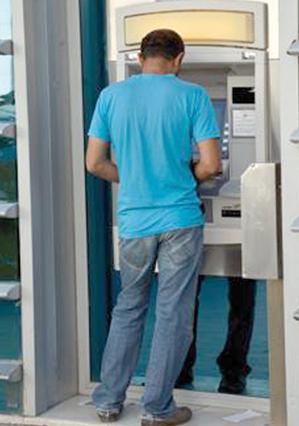You are here
‘Raising minimum wage a positive step, but disproportionate to rise in prices’
By Khetam Malkawi - Feb 09,2017 - Last updated at Feb 09,2017
AMMAN — Raising the minimum wage is a positive step by the government, but the JD30 raise does not comply with the hike in prices, commentators interviewed by The Jordan Times said on Thursday.
The Cabinet on Wednesday took a set of economic measures, which included hiking fees and taxes as well as raising the minimum wage from JD190 to JD220.
Ahmad Awad, an economist and specialist in labour rights, said activists have been calling for this move for long, but the increase should have been more.
According to Awad, the poverty line in Jordan is JD300, while World Bank 2010 figures show that 14.4 per cent of Jordanians live under the poverty line.
Lower House Deputy Khaled Ramdan agreed with Awad, noting the move as a good step, but “it is not enough”. He added that the Cabinet should have considered studies by the tripartite committees that includes employers, employees and the Labour Ministry.
“We are aware and understand the pressure on the government due to the country’s difficult economic situation,” Ramadan told The Jordan Times, adding however, that the raise should have been decided based on actual studies.
Eman, who works in housekeeping in one of Amman’s five-star hotels, said that before the raise, her salary was JD200.
“I pay half of it for transportation, and the remaining JD100 does not cover my other basic expenses,” Eman told The Jordan Times.
She added that she lives with her parents and does not have to pay rent, “but if this salary, even with the increase of the minimum wage, is earned by someone who has other responsibilities, it will not be enough”.
This sentiment was echoed by Linda Kalash, Tamkeen Fields for Aid executive director.
Kalash said that with the absence of social protection in Jordan, where there is no free medical healthcare while education costs are rising, this salary will not be enough for a breadwinner.
She also stressed the importance of conducting studies before taking such decisions.
According to Kalash, prices have been doubled or tripled since the government endorsed the last minimum wage in 2011, and the JD30 does not comply with the hike in prices.
Meanwhile, for Awad, raising the minimum wage of Jordanians and excluding foreign workers, although a discriminatory issue, would encourage employers to hire non-Jordanians.
This, he noted, will affect the government’s plans to encourage the employment of Jordanians.
Related Articles
AMMAN — The government is required to reconsider raising the minimum wage in light of price and tax hikes, as the poverty ratio is exp
AMMAN — Working two jobs for approximately 80 hours a week is still not enough for Ammar, a 25-year-old college graduate, to support his fam
AMMAN — Labour rights activists are calling on authorities to reconsider the recent decision to keep the minimum wage at its current level,


















